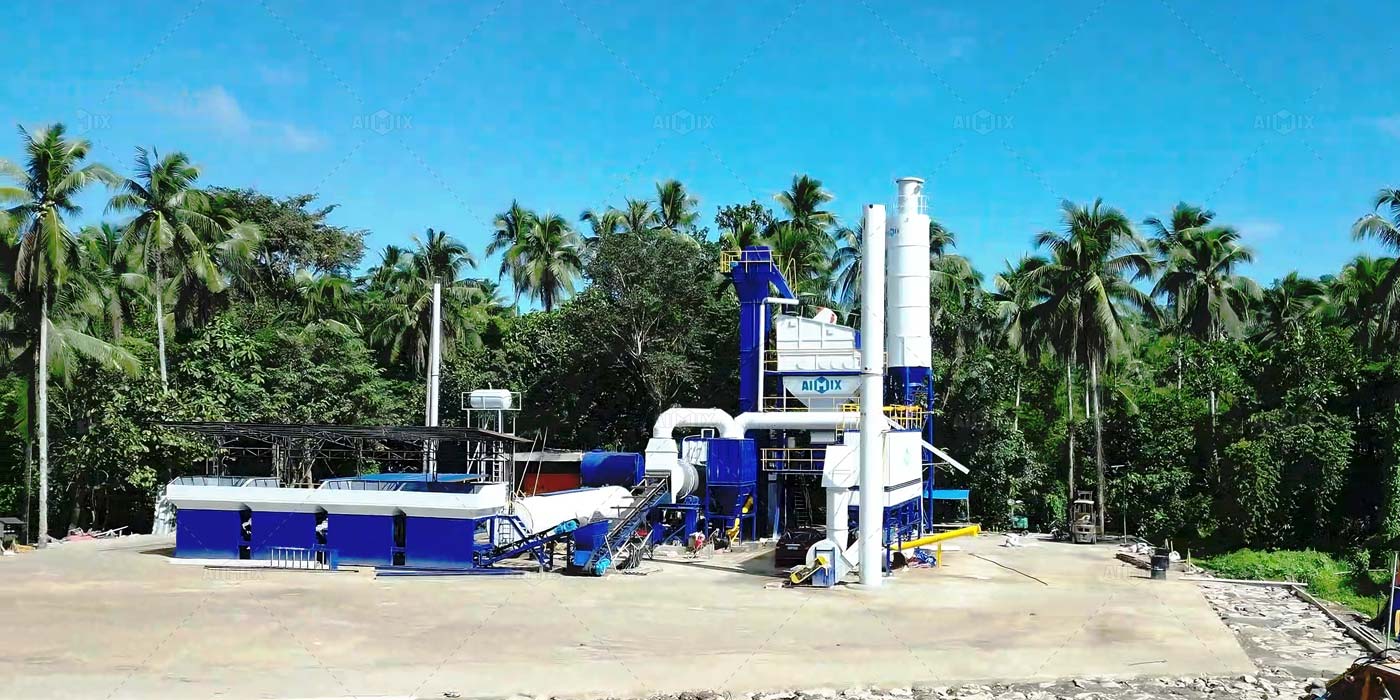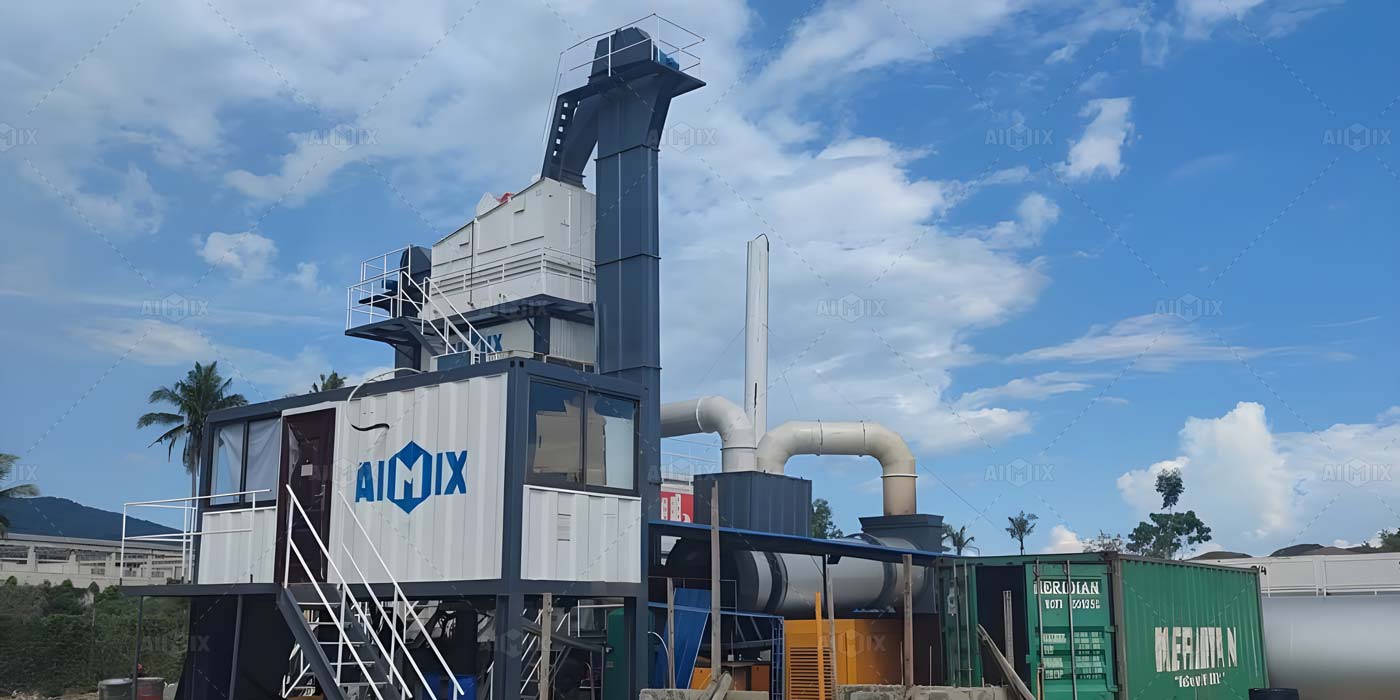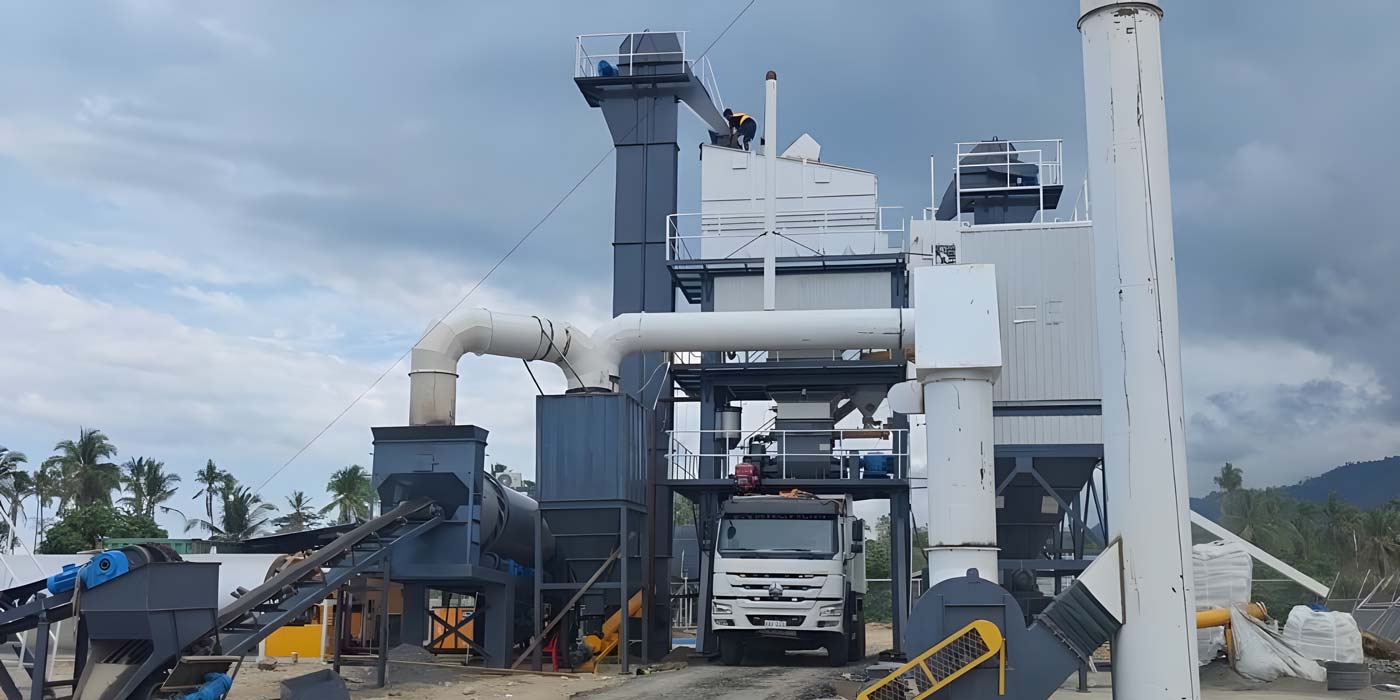When planning a city road project, one key decision is choosing the right asphalt plant capacity. For a 10 km road with a 10 cm asphalt layer and an estimated material need of about 10,000 tons, selecting the proper plant capacity can impact your project timeline, costs, and quality. This post guides you through practical considerations to help you find the best asphalt mixing plant size that matches your specific project requirements.

Understanding the Project Requirements
Before deciding on asphalt plant capacity, you must clearly understand the project scale and specifications. The example here is a 10 km long city road with a 10 cm thick asphalt layer. This roughly requires around 10,000 tons of asphalt material. Knowing these numbers is essential because it determines the total volume of material to produce and the schedule for delivery.
Additionally, urban road projects often have constraints like limited working hours, traffic management, and quality standards that affect how fast you must produce and lay asphalt. Therefore, your asphalt plant capacity must align not only with the total tonnage but also with daily production demands.
Calculating Asphalt Plant Capacity for Timely Completion
Next, let’s translate your project needs into asphalt plant capacity. If your road project aims to finish within a certain period, you need to calculate how many tons of asphalt must be produced daily.
Daily Production Needs
Assuming you want to complete paving in 20 working days, the daily production requirement would be about 500 tons per day (10,000 tons ÷ 20 days). Considering working hours, usually 8-10 hours per day, your hot mix plant for sale should have a capacity that supports this rate consistently without downtime.
Choosing Between Different Plant Capacities
Common asphalt plant capacities range from 40 tons/hour to 160 tons/hour or more. For a 500-ton daily requirement, a plant with a capacity of around 50-60 tons/hour can work well, assuming 8-10 working hours per day. This size balances production speed with operational costs.
However, if your project timeline is shorter or requires working in multiple shifts, opting for a higher capacity plant (e.g., 80-120 tons/hour) might be necessary to keep up with the accelerated schedule.

Why Choosing the Right Asphalt Plant Capacity Matters
Selecting the correct asphalt plant capacity affects your project’s efficiency, costs, and quality. A plant that’s too small slows production and risks missing deadlines, causing extra costs and penalties. On the other hand, an oversized plant increases initial investment and operating costs, which may not be justifiable for a project of this scale.
Moreover, a reliable plant with the right capacity ensures steady asphalt quality. Consistent production reduces material variation, improving the durability and safety of your city road.
Additional Factors to Consider When Selecting an Asphalt Plant
Besides capacity, consider factors such as plant mobility, fuel efficiency, and ease of operation. A mobile asphalt plant can move closer to your job site, reducing transportation costs and asphalt cooling. Also, advanced automation features help maintain consistent mix quality and reduce manpower requirements.
Moreover, local support and after-sales service should influence your choice. Quick technical support minimizes downtime, keeping your project on schedule.

Summary: Matching Asphalt Plant Capacity to Your Project Needs
For a 10 km city road with a 10 cm asphalt layer requiring around 10,000 tons, an asphalt plant with a capacity of 50-60 tons/hour suits typical project timelines. This capacity offers an efficient balance between production speed and cost. Adjustments may be needed based on your exact schedule, working hours, and project constraints.
By understanding your project’s volume and timeline clearly, you can select an asphalt plant that supports smooth operation and quality paving work.
How We Can Help You Find the Right Asphalt Plant
At AIMIX Group, we understand the challenges city road projects face. We provide a range of asphalt plants with flexible capacities from 40 to 160 tons/hour. Our plants offer high-quality production, fuel efficiency, and advanced automation to meet your specific needs. Plus, our local support in Indonesia ensures fast service and reliable guidance.
Contact us today to discuss your project and get professional advice on the best asphalt plant capacity to keep your city road project on track and on budget. Learn about the asphalt plant cost at right!
Leave a Reply